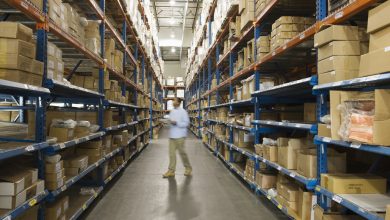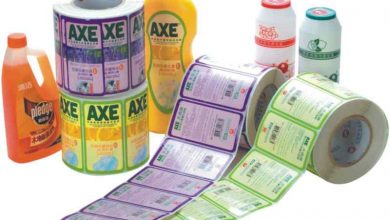Life of Newspapers in the Digital Age

Declining advertising revenues and dwindling circulation were the most serious issues that the newspaper industry dealt with over the past few years. The great recession and the migration to digital platforms were cited as the major cause for this decline. With the entry of smart phones, news has become easily accessible and there is no dearth of information or the way to access them. But according to the recently released Arab Media Outlook 2009-2013 released by Arab press Club, all these issues have not deterred the newspaper industry from growing. The report states that the overall daily circulation and the total number of titles are continuing to increase every year in the region, compared to the developed markets where the circulations are decreasing in number.
The report indicates that the growth in the industry will continue for the next five years, though it will be on a slow pace. The report projects a compounded annual growth rate of 2.3% for the years 2009 to 2013 and states that the biggest growth will be in Egypt, Bahrain and Qatar. Globally advertising revenues were the most hit and according to WARC (world advertising research centre); in UK there was around 60% reduction in the advertising revenues generated from classifieds between 2004 and 2008, which was estimated to be over US$ 1 billion. The Arab Media Outlook figures out that in the Arab region about 40% of the revenue generated from newspapers comes from the sale of newspapers, and around 60% from advertising.
Trends in Industry
Some of the interesting trends that surfaced during the past decade in the region were the increase in the number of free newspapers and the inclination towards digital news content. Though free newspapers are not regarded as a lasting trend, there was significant growth in this sector, especially in UAE. After the Arab Spring, online content and user generated content were highly in demand. In light of this trend, many newspapers went online to provide additional services and now they are in the lookout for generating revenue from their online content. Newspapers not only provide readable material but now provide audio visual content to attract more viewers and readers.

Embrace Change to Tackle Challenges
Ghada Al-Amely of Al Mada Newspaper talks about the trends in the newspaper industry in Iraq
Changes are now visible in Iraq. Things are now going the development path, and it’s the same with the newspaper industry. ME Printer Magazine talked with Ghada Al-Amely, General Manager of Al Mada newspaper in Iraq to know about the challenges and opportunities that they face in Iraq. Read the interview, where she talks about her experience over the years and how the newspaper survived against all the odds.
 Can you explain to us about your experience in the print industry?
Can you explain to us about your experience in the print industry?
My personal experience with the industry began in the mid-nineties, at a time when the newspaper did not have the current prosperity. We had to put in a lot of effort to bring in the professionalism that we have now. It was during the nineties that computers were introduced, and during those days the role of computers was limited to setting headlines, news and managing images. With the help of a number of colleagues, I designed the newspaper Zora on Coral, which stood out both in design and concept. Designing the newspaper was a tough task. There were many limitations, like lack of experience, proper training etc. We made use of simple programs that was bought at a cheap price from Iran.
It was during the end of 2003 that we founded the current press in the new Iraq. We faced many obstacles on the way, like finding talented work force and the backing of a strong and solid media data base. From that stage, I worked on to provide our employees with the latest computers, give them training on the latest software on production, equipping the press with imported modern printing presses and other facilities. We relied on the experience of other newspapers in the Arab world and through the integration with some of these institutions and their counterparts in developed countries; we were able to raise our standard to an international level. We inducted many young professionals and gave more opportunity for women workers.
The first edition of Al Mada newspaper was published with 16 pages and came as a surprise for the media centre in terms of its form and content. We summoned a number of experts to update the hardware and equipments needed for printing, despite the difficulties that surfaced during this process. Today, more than 100,000 people visit the website of the newspaper daily and around 12,000 to 15,000 copies are distributed daily.
Printing in Iraq is relatively expensive, which forces many to print outside Iraq. The cost of consumables like inks, plate and other accessories are high compared to its neighbouring countries. Recent activities like the imposition of customs duty have also increased the printing costs. The insurance cost of materials is also relatively higher because of the frequent terrorist acts that take place in Iraq. Apart from these the lack of technical competence to operate the machinery is also a problem. Frequent power cuts have forced the owners of the printing presses and factories to buy generators. Rising price of kerosene and the failure to curb the prices have also led to the increase of the printing cost. These factors have led newspapers to sometimes reduce the number of copies.
Have the changing lifestyle and the inclination towards digital content affected the demand for newspapers?
Daily newspapers have a regular clientele and they are considered as the most trusted source for political, intellectual and economic reports. But recently there has been a dramatic decrease in the number of readers for the print medium.
With the growing success of websites like Wiki leaks and other blogs, do you think that the credibility of news is at stake?
In Iraq for example, the news that is published on the websites or any other documents for that instance has to be first approved by the Council of Ministers. The Council of Ministers had recently announced measures to combat information that are freely circulated in the web, keeping in mind the freedom for speech and expression. If any information is published without the consent of the council, then it is considered as breach of the Iraqi constitution.
Do third and fourth generation devices and technologies add value to the digital revolution?
Readers, especially young people are more attracted towards digital content. Information available online is supported by pictures and videos that sheds light on a subject in more than one angle. In Iraq, technology is not as updated as that available in other Arab or other foreign countries. The major reason for this is the destruction of infrastructure and the lack of security and stability that was caused after the war of 2003. So, companies specialized in the field of communication are rather reluctant to enter the Iraqi market, in spite of the encouragement provided by the Iraqi government to investors.
All these factors reduced the use of advanced technologies in the country. But recently there has been a rise in the use of computer tablets, particularly by young people. Searching the internet for news has become a normal procedure. In order to gain access to a wide spectrum of audience, news organizations must attract people through social media platforms like Facebook and Twitter.
Will the invention of digital technologies pull the rug out from the newspaper industry?
Al Mada primarily began as a publishing house (Dar-Al-Madina publishing and distribution), and is one of the most important and largest publishing houses in the Arab world. It has branches in Syria, Beirut, Cyprus, Baghdad and Amman, Cairo, Iraqi Kurdistan etc. Later on, a number of companies were linked to the parent company, among which Zamoa; an advertising company is the most famous. In Iraq, reading newspapers is like an addiction. This habit cannot be easily abandoned, though we expect that in the next ten years there would be a gradual decrease in the circulation, if newspapers don’t keep up with the technological advancements that are happening in the digital world. People still prefer to publish books rather than publishing them on websites. The newspaper industry has still a long road to go. It will take decades of transformation to reach a state of paper less environment. Technology wise, Iraq is still lagging behind other countries. Internet has yet to reach villages and rural areas and still newspaper is the most preferred source of information. Development is yet to take place in this area.
What reforms do you suggest to increase the demand for newspapers?
The most important step is to develop a format that suits the content and that stands apart in design and effect. The design and content must meet the demand and need of the market. We have been seeing recently, that a large number of students and young professionals have been looking into courses that will help them to fine tune their creative skills. This shows the importance of creativity in print medium.
Consumables are becoming expensive day by day. Will newspapers become a costly affair in the future?
The cost of producing a newspaper in Iraq is equivalent to around 2 dollars per copy for a 20 page full sheet with four colours in the first and last pages only. The newspaper is sold at least for a quarter of the cost. There will be a decline in the amount of newspapers printed, if news organizations did not balance between expenditure and financial returns either through increasing the sales and advertising or through other operations that benefit the institution.
What are your future plans taking in view the current state of journalism?
We are planning to develop tools and equipments for the institution that will facilitate the overall development of the organization, train the employees on the latest developments and thereby catch up with the development of the world.
Sudan: Newspapers Threatened With Rising Paper Prices
Monopoly and rising paper prices cause heavy losses for the newspaper industry
 Editor in Chiefs of some Sudanese newspapers warned that their publications would be stopped after Ramadan, owing to the rising cost of consumables and the hefty fees and taxes imposed on the industry. However, the new Minister of Media, Dr. Ahmed Bilal Osman has vowed that he would not lead to the closure of these newspapers.
Editor in Chiefs of some Sudanese newspapers warned that their publications would be stopped after Ramadan, owing to the rising cost of consumables and the hefty fees and taxes imposed on the industry. However, the new Minister of Media, Dr. Ahmed Bilal Osman has vowed that he would not lead to the closure of these newspapers.
Editors of these newspapers reasoned the monopoly in paper trade and printing as the major reason behind the price increase. They said that traders increase the price of paper every other day and caused a loss of 5 million Sudanese pound for every 10,000 copies printed. Editors warned that if the price hike is not removed, no newspapers will be printed in Sudan thereafter.
The minister acknowledged in a meeting, which was held with the heads of the newspapers, that the newspaper industry in Sudan is facing many hurdles. He said that the government based newspapers are also facing similar problems. The Minister pointed out that the economic crisis experienced by the country and the restrictions imposed on newspapers added fuel to this ordeal. He warned that the absence of newspapers would open up the way for foreign media and satellite televisions into the country, which would cause permanent damage to the industry.
Newspapers Must Enter Social Stream to Be on Trend
Ahmed Bin Saeed Al Rumaihi talks about the changes in the industry in Qatar
Al Arab Newspaper in Qatar was the first daily newspaper to be established in Qatar. ME Printer Magazine talked with Ahmed Bin Saeed Al Rumaihi, Editor-in-Chief of Al Arab Newspaper to discover the trends in the newspaper industry and how the digital trends are harnessing their powers in the technology driven society.
 First of all, can you share with us about your experience in the newspaper industry, taking into account the current changes?
First of all, can you share with us about your experience in the newspaper industry, taking into account the current changes?
Al-Arab is the first daily newspaper in Qatar that was founded by the Dean of the Qatari press, Abdullah Hussain Naama. The establishment was founded in 1972 and was known as Dar Al Orouba centre for printing, publishing and distribution. We are the exclusive agent for all foreign Newspapers and Magazines in Qatar since 30 years. Al-Arab newspaper had to discontinue its publication in the year 1996 and it resumed publishing on November 2007. Today about 30,000 visitors hit the web page of the newspaper and we distribute around 12,000 copies daily.
The focus in this stage is to involve the readers and interact with them as much as possible. We used and continue to be the first national newspaper that offers its readers the possibility to comment on articles and news that is published in its website. Our portal links its content with a number of social networking sites like Facebook, Twitter and Youtube.
Has changing lifestyle been a factor in increasing the demand for digital news content?
Certainly; people are today driven by the technological and digital advancements, which help them in enjoying a comfortable lifestyle. Even satellite channels keep pace with this development by making themselves available in tablet PCs and smart phones.
With the great success of websites such as Wiki leaks, do you think that the credibility of news is at stake?
It is really difficult to sort out credible information from the vast amount of data that is circulating on the internet. Social networks now provide the viewer with instant updates and information, and we are now living in an era where information is open and there is no censoring or screening. I believe that the credibility of the news will remain the main concern for the audience, as long as it’s not coming from a trusted source.
Do technological developments add value to the digital revolution?
New technologies have added value and changed the nature of people’s lifestyle and habits. Modern age devices influence us to such an extent and without them many go into a state of depression. This explains the exponential increase in the reliance on technology. Now it’s time that we give awareness about the disadvantages of being over dependent on technologies.
Newspapers and other print media are now resorting to the Internet. To what extent do you think easy digital access has contributed in spreading the information via Internet?
As mentioned earlier, it has become quite imperative for all the media to experience the power of the World Wide Web and take advantage of its features, such as speed and using its potential for intelligent search, which were not available earlier.
Forums and chat rooms are becoming popular among Internet users. Newspapers are also moving in this direction, do you think that this will increase the popularity of news media?
Interactive forums and sharing information have become a norm today, and is very popular among internet users. For example, Wikipedia is an active forum, where people can interact and contribute. Only if media outlets provide a two way interaction, readers or viewers will be interested in it.
What reforms do you propose to overcome the obstacles that threaten the existence of newspaper organizations?
Despite awareness about the information revolution that’s provided through the Internet, newspapers have not yet explored its full potential. This needs to be changed. Newspapers have to make way and include more space for social networking activities and the participation of public to make it more active.
Do you think that digital media is more expressive and safer in light of the recent revolutions in the Arab region?
When expressions are unleashed without any controls, it only leads to anarchy and chaos and other dire consequences. There must always be a sense of responsibility when opinions are expressed, whether it be through print or digital media.
Most newspapers in the region are non-profit organizations, which are supported by governments. To what extent does this help newspapers to stay alive in the midst of mounting challenges?
I believe that government support is essential and will help media companies to effectively convey social, economical and political statements of the government to the general public.
Will the intervention of modern technology pull the rug from under the print media?
When television was introduced, people said that its time to bid the radio goodbye. But today we can see that there is an audience for both television and radio. Same can be said for print media and digital journalism. Newspapers should go with the flow of technologies to remain aloft in today’s digital era, but that doesn’t mean that we will soon see the decline or death of the printed media.
Has urbanization and the shift of population from villages to cities been an influential factor in increasing the popularity of digital news content?
The issue of urbanization is relatively high in this area. With the emergence of new technologies, digital divide is visible amongst the people residing in rural and urban areas. But it is not necessary that those who are in possession of the technologies utilize it fully. For example, we have found that all those who have smart phones do not use it to navigate the internet, but a large proportion uses it for just making phone calls.
To what extent does creativity help in reviving newspapers?
As I said before, just as radio and television has maintained its stand in the long run by adopting to the changes, newspapers must also respond to the challenges by making themselves attractive in form and content.
Do the dearth of consumables used in printing, such as paper, inks etc. threaten the existence of newspapers in future?
I don’t think so. Natural resources used by the newspaper industry are still widely available and they don’t pose a threat to its existence.
What’s your opinion about the pay wall system? Will information become expensive in the future?
The e-edition of many newspapers is now being put under the pay wall scheme. This opens up an additional revenue channel to newspapers and will help them to survive in the long run.
What are your future plans?
Our vision is to restore the credibility of news that appears in our newspapers and to restore the presence of Arab media on a global front. We aim to build a newspaper that is interactive and that takes advantage of new opportunities offered by the modern technologies. We plan to have a training centre that will help our youngsters in staying in line with international standards. In short we are striving to become a credible source between the public and the institutions present in the society and contribute to provide accurate information and spread public awareness to the general public.
Egypt: New Editors Appointed by Shura Council
The changes were made effective in prominent state newspapers and magazines
 The Shura Council in a major reshuffle appointed new Chief Editors for the state-owned newspapers. The announcement has wrapped up the debate over the controversial selection process that began more than a month ago.
The Shura Council in a major reshuffle appointed new Chief Editors for the state-owned newspapers. The announcement has wrapped up the debate over the controversial selection process that began more than a month ago.
The editors were nominated by the Council’s General Committee, which was later approved by vote during a general session of the upper house of the Parliament. Engineer Fathi Shahabuddin, Chairman of the Committee on Media, Culture and Tourism in the Shura Council said to newspapers that 80% of the changes were made as per the nationalization policy of the government. In a press statement, he said that, “The new changes aim to fill all positions with professionally qualified people.” He indicated that the reformation process was hard and full of difficulties.
The list of newly appointed editors is as follows:
Al Ahram: Abdel Nasser Salama
Al Ahram Economic: Salem Wahby Hafez
Al Shabab: Hassan Fathy
Nasf Al-Donya: Amal Fawzy
Al Ahram Al-Masaee: Mohamed Kharaaga
AlaaEddin: Mohamed Thabet
Al Ahram Al Arabi: Ashraf BadrMahdy
Al Bayt: SalfeyaSaadEddin
Lugha Al-Asr: Adel Al-Laqqani
Al-Democratia: Basheer Abdel Fattah
Al-Taawun: Mohamed Abu Shusha
Al-Zeraeya: Azmy Al-Nasharty
Al-Ahram Sport: Anwar Mohamed
Al-Ahram Weekly: GalalNassar
Al-Ahram Ebdu: HeshamMourad Ismail
Al-Seyasa Al-Dawlia: Awad Khalil
Diwan Al-Ahram: Kawthar Ahmed
MENA: Shaker Gamal Eddin
Al-Akhbar: Mohamed Hassan Al-Banna
Al-Akhbar Al-Youm (Weekly): Suleiman Qanawy
AkherSaa: Ibrahim Abdel Rahman
Akhbar Al-Hawadith: Mamdouh Al-Sagheer
AkhbarSport: Abdallah Mohamed
Akhbar Automotive: Ayman Abdel Aal
Gareedat Al-Lewa: Abd Al-MoatyEmran
Al-Mesaeya: Mahmoud Talaat Al-Khouly
Akhbar Al-Nogoum: EntesarDerdery
Akhbar Al-Adab: MagdyTohamy
Al Gomhouriya Newspaper: Gamal Abdel Rahim
Egyptian Gazette: MagdyQattan
Al-Noskha Al-Francia: Mohamed Al-Sayyed
Shashty: Hossam Abdel Moneim
Al-Mesaa: Abdel Momen Al-Hebaa
Hereety: Abdel Fattah Morsy
Al-Raa: Mohamed Ali Al-Sharqawy
Aqeedaty: Megahed Bassiouny
Dar Al-Helal Al-Mossawir: Ezzat Badawy
Hawwaa: AmalMabrouk
Al-Helal: Mohamed Abdel Wahab Al-Shafei
Tom and Jerry: Ebtesam Mohamed Mahmoud
Rose Al-Youssef Magazine: Essam Abdel Aziz
Sabah Al-Kheir: Mohamed AbdallahHeeba
October: Ahmed Shaheen
Ghada Al-Amely of Al Mada Newspaper talks about the trends in the newspaper industry in Iraq





